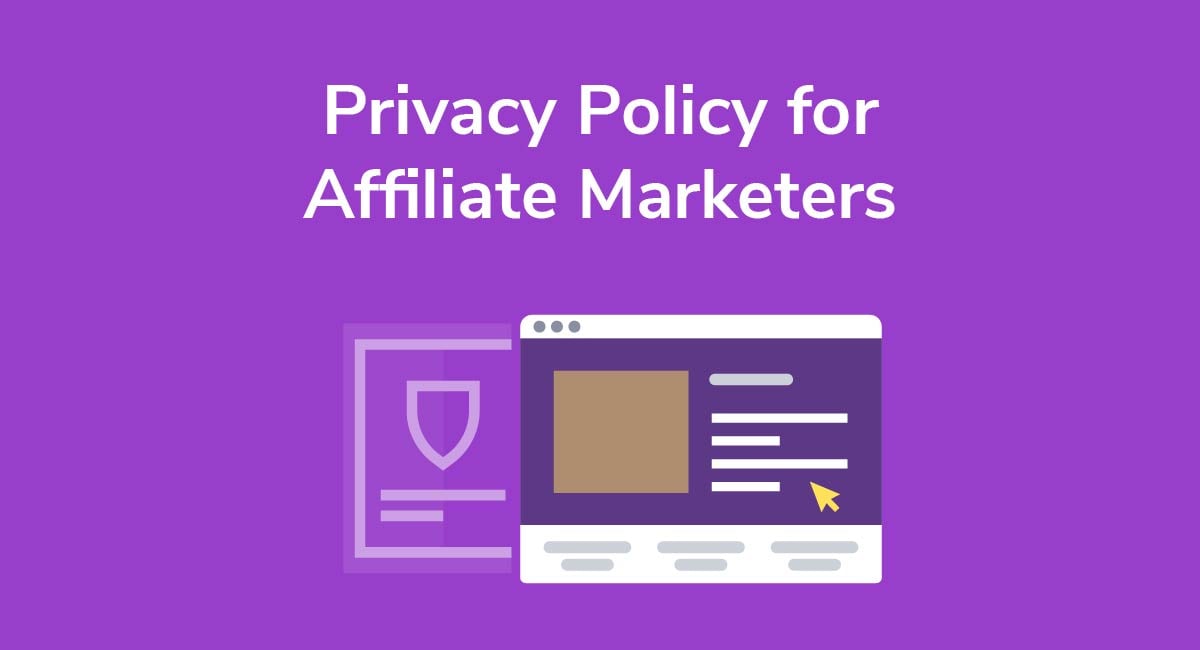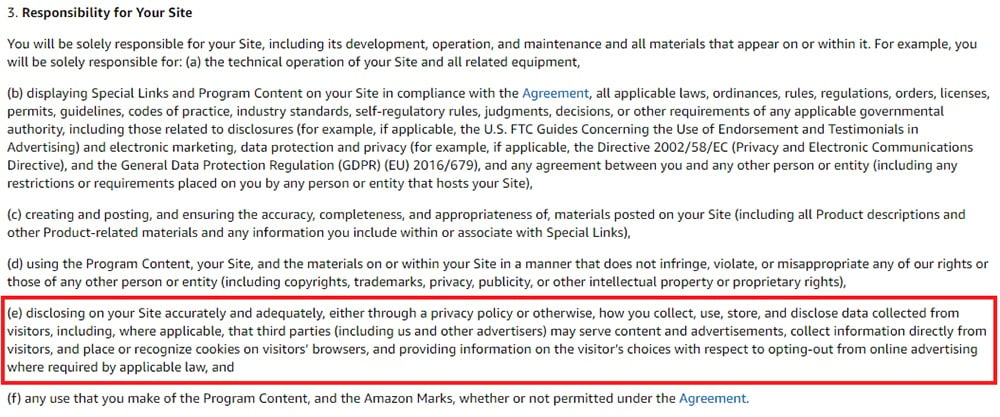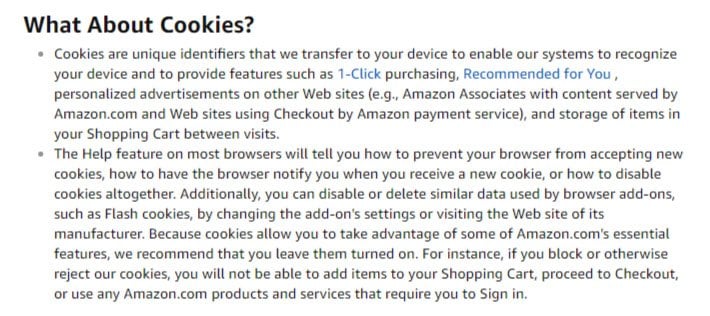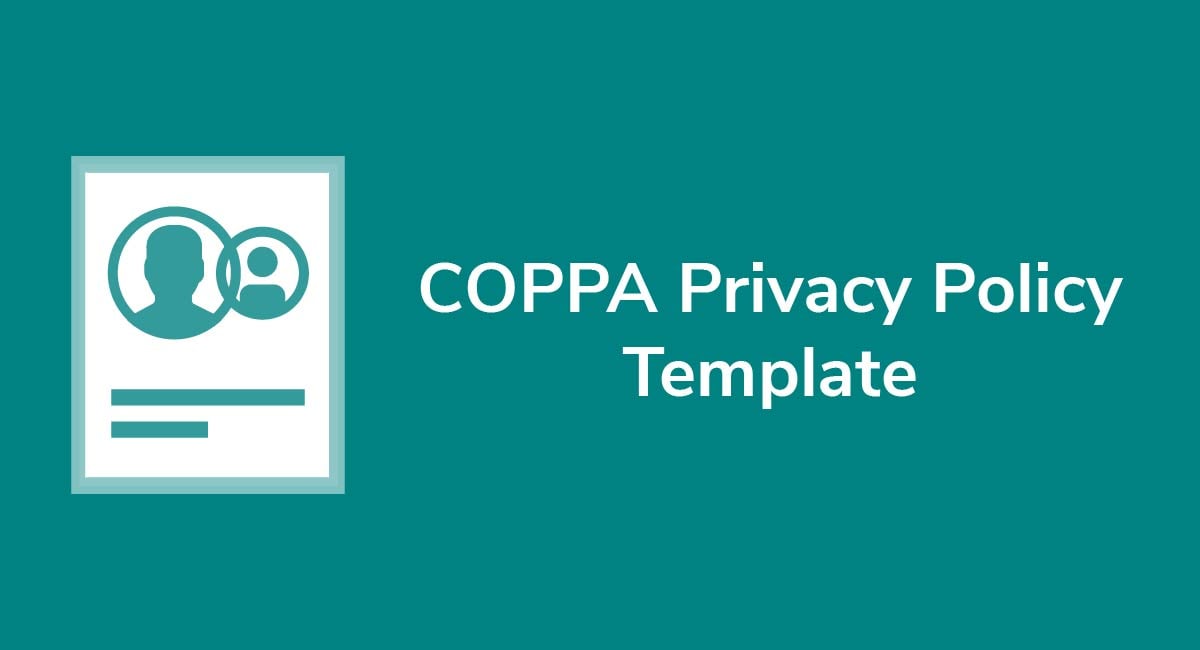Privacy Policy for Affiliate Marketers

Perhaps the easiest way to understand affiliate marketing is to see it as a series of steps:
You, the affiliate, have a website that gets traffic.
You find a product you like, or at least one that you think your readers will like.
The merchant who sells the product will give you a personalized link that leads users to the merchant's website.
You post that link on your website to share with your readers. If one of your readers takes an interest in the link you've posted, they'll click on it, and that click will take them to the merchant's website where they can decide whether or not to buy the product or service.
If they buy the product or service after clicking on the link from your website, you get a commission from the sale.
Affiliate marketing is a way for businesses to spread their ad revenue around in order to boost sales.
It also comes with a few legal requirements, including having a Privacy Policy.
Need a Privacy Policy? Our Privacy Policy Generator will help you create a custom policy that you can use on your website and mobile app. Just follow these few easy steps:
- Click on "Start creating your Privacy Policy" on our website.
- Select the platforms where your Privacy Policy will be used and go to the next step.
- Add information about your business: your website and/or app.
- Select the country:
- Answer the questions from our wizard relating to what type of information you collect from your users.
-
Enter your email address where you'd like your Privacy Policy sent and click "Generate".

And you're done! Now you can copy or link to your hosted Privacy Policy.




Let's suppose you have a website that attempts to do one or all of the following:
- Promote your real-life brick-and-mortar business, revealing new developments and advertising your products
- Sell your products from your website
- Is basically a blog where you express your personal feelings and don't try to sell anything - but you'd like to earn some cash in order to keep it going
In any of these three scenarios you could advertise another merchant's products and services on your site.
If they agree to accept you as an affiliate, they'll give you a link to place on your site. You may get paid a small fee every time someone clicks on the ad that's on your site, and if you're not paid for clicks you'll certainly be paid a commission every time someone who clicks the ad on your site goes on to buy something on the merchant's site.
Let's look at an example.
Amazon Associates is an affiliates program. If I'm an Amazon Associate, I'm an affiliate of Amazon. They give me a link to post on my website for, say, a new novel. When someone clicks on the affiliate link on my site, the link puts a cookie on their browser to track their clicks. If they buy the novel after clicking on the link from my site, I get a commission.
Do Affiliate Marketers Need to Have a Privacy Policy?

Laws that govern the collection of personal data from consumers have been passed by countries around the world including Canada (PIPEDA), the European Union (GDPR), and the state of California (CalOPPA).
These laws affect affiliate marketers who collect personal data from their blog/website users.
Whether or not you live in these jurisdictions, you're still required to comply with these laws if you collect personal data from citizens of the jurisdictions.
Departments like America's Federal Trade Commission (FTC) exist to protect consumers, and so naturally they've drafted rules for affiliate marketers.
According to the FTC, the merchant is responsible for the activities of its affiliate marketers. However, the law isn't severely applied, and as long as a merchant makes an effort to ensure that affiliates abide by the rules, they won't be punished if one affiliate covertly crosses a line.
Here's an example of how a merchant will hold an affiliate responsible for complying with the law. The Amazon Associates Program Participation Requirements demand that affiliates disclose tracking:

What this means for you, the affiliate, is that you're obligated to comply with the law if you want to participate in the affiliate program.
Laws aside, It's also just in your best interests to have a Privacy Policy and disclose that you collect personal information through your participation in affiliate marketing. If you're new to affiliate marketing consider using a Privacy Policy Update Notice to let your users know you updated your current Privacy Policy to reflect this new practice.
A well-drafted Privacy Policy makes you look trustworthy and transparent, which can't hurt your business. If you're an affiliate marketer and you look trustworthy, the merchant whose products you promote looks trustworthy as well and you'll surely pull in more business.
Privacy Policy Rules

In general, your policy must follow these rules:
- It must be easy to understand.
- A link to it must be prominently posted, usually in your website footer.
- It must inform people of their rights and explain how they can protect those rights.
- It should disclose whether or not you receive a commission for the products promoted on your website.
- It must contain a clause disclosing if cookies are being used.
Examples
Below is the cookies clause from Third Door Media's Privacy Policy. Note how they use the library card analogy to assure users that their information is protected:
![]()
Here's the cookies clause from Amazon's Privacy Notice:

This clause explains how to disable cookies, but also explains how they're essential to the shopping experience.
Always Disclose
Whether or not you're being paid a commission is something that the consumer needs to know so that they can make an informed decision.
The fact that you're being paid a commission for promoting the product needs to be posted on or near the link or endorsement so that readers can get the message right away instead of having to hunt for it. And it should be in language and terminology that ordinary people can understand.
Here's an example of a standard affiliate disclaimer that can be placed near affiliate links or at the beginning of posts that contain them:

What this means for the affiliate is that this disclosure can't just be embedded within the Privacy Policy. However, your Policy must include the appropriate information about collecting personal information.
Let's Recap
- Affiliate marketing is a way of earning a commission by promoting other parties' products and services.
- As an affiliate marketer, you are responsible for complying with laws regarding privacy and disclosure.
- As a website owner who collects data from users, you need to have a Privacy Policy and make it easily accessible on your website.
- The way to comply with the law as an affiliate is to put disclosure statements near the link to the product you are promoting and to include a clause in your Privacy Policy that discloses the use of cookies to track a user's clicks.
![How to Protect Your Mobile Phone Privacy [Calls, SMS & Location Data]](https://www.privacypolicies.com/public/uploads/2018/02/how-to-protect-your-mobile-phone-privacy.jpg)

